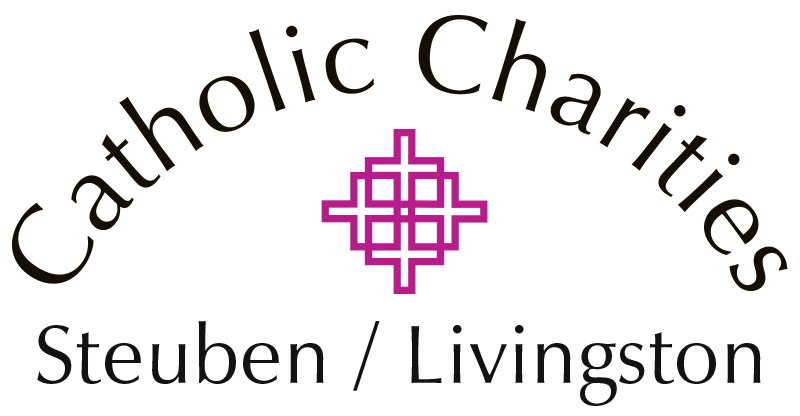Catholic Charities is committed to providing a work environment that is free of unlawful discrimination and harassment. Respecting the dignity of the human person, employment decisions are based on business need, merit, qualifications, competence and performance, where applicable. Specifically, in accordance with Executive Order 177 and the New York State Human Rights Law, Article 15 of the Executive Law, the employment application process, recruiting, hiring, job assignments, and promotion of individuals in all job classifications will be conducted without unlawful discrimination on the basis of race, traits historically associated with race, including, but not limited to, hair texture and protective hairstyles, including, but is not limited to, “such hairstyles as braids, locks, and twists, color, creed, religion, gender, sex, sexual orientation, actual or perceived gender-related identity, appearance, behavior, expression, or other gender-related characteristic regardless of the sex assigned to that person at birth, including, but not limited to, the status of being transgender, national origin, citizenship status, age, disability, political beliefs, marital status, domestic violence victim status, genetic predisposition or carrier status, arrest record, military status, wearing or displaying the American flag, donating blood, pregnancy (including childbirth, lactation, and related medical conditions), alienage or citizenship status (unless required by law), , reproductive health decision making (including, but not limited to, the decision to use or access a particular drug, device, or medical service), partnership status, caregiver status, familial status, , unemployment status, genetic information (including genetic characteristics) or any other legally protected status or category, in accordance with applicable federal, state and local laws governing nondiscrimination in employment. These rights shall apply at every location in which Catholic Charities has facilities.
Employment decisions will be
a. based on merit, qualifications, and competence,
b. made in such a manner as to further the principle of equal employment opportunity; and
c. based on specific Agency needs.
The Agency will make reasonable accommodations for qualified individuals with known disabilities unless doing so would result in an undue hardship. This policy governs all aspects of employment, including selection, job assignment, compensation, discipline, termination, and access to benefits and training. Employees with a disability who believe they need a reasonable accommodation to perform the essential functions of their job should contact the Human Resources Department.
Most positions are open to all employees and applicants regardless of religion, but certain positions require active membership in the Roman Catholic Church. Where this is required, it will be stated in the job description.
These practices and policies also apply to the selection of volunteers and vendors. We are committed to providing an inclusive and welcoming environment for all clients, members of our staff, volunteers, subcontractors, and vendors. Any employee who becomes aware of an incident of discrimination, whether the victim in the situation is a staff member or person supported by the Agency, and whether the employee is the victim, a witness, or has been told of the situation, they must report it to their immediate supervisor, or another member of the managerial team with whom they feel comfortable sharing the information with. If the immediate supervisor and/or managerial staff is unavailable, the staff member should contact the Human Resources Department. Management is required by law to take immediate and appropriate action in all reported instances. Employees can raise concerns and make reports without fear of retaliation, reprisal or intimidation. Anyone found to be engaging in any type of unlawful discrimination will be subject to disciplinary action, up to and including termination of employment.
PROCEDURE:
1. An “open-door policy” is maintained at all levels of management to encourage affected individuals to report problems and concerns. All members of management who receive reports of EEOC discrimination and/or other concerns are required to report those issues to the Office of Compliance & Ethics or Human Resources immediately.
2. Confidential reports may be made as follows:
a. To any member of the Office of Compliance & Ethics, the Human Resources Director or the Employee Relations Manager in person, via telephone, email or U.S. mail. Electronic reports may be made in the electronic compliance platform; for example, through the Complytrack portal via the “the Compliance Inquiry & Issue Reporting” form, either confidentially or anonymously at https://ccdr.complytrack.com/portal.
OR
b. Through a confidential and anonymous Integrity Hotline. CCDR maintains
a Hotline which is monitored by a third-party 24 hours per day, 7 days per week and 365 days per year. The Integrity Hotline can be reached toll-free by dialing 844.440.0093. Callers who require a language other than English may dial 844.301.0005 also toll-free for a variety of languages (e.g., Spanish, French, Arabic, Russian, etc.).
OR
c. Reports may also be made via the internet at www.lighthouse-services.com/ccdr, by email to reports@lighthouse-services.com or via facsimile at 215.689.3885. For anonymous reporters, no attempt will be made to trace the source of the allegation. The Integrity Hotline number will be printed and visibly posted in a manner consistent with notification in locations frequented by all affected individuals.
d. Allegations involving the CEO/Executive Director will be routed directly to the Chief Compliance Officer and Human Resources Director for investigation and handling. Allegations involving the Chief Compliance Officer or Human Resources Director should be made directly to the Diocesan Director at (585) 328-3210, who will work with the CCDR Audit & Compliance Committee on the investigative process.
3. The investigation will be conducted accordingly:
a. The investigation will be based on fact.
b. The Agency will preserve the confidentiality of all involved, to the greatest extent as is possible.
c. The Agency will prevent intimidation and retaliation against the employee bringing the complaint as well as anyone who assists with the investigation.
d. The Agency will ensure fair treatment of the person accused of discrimination.
e. The findings of the investigation will be communicated to all parties.
f. If the investigation finds that a violation of this policy did occur, appropriate corrective and/or disciplinary actions will occur, including termination if the situation warrants it.
g. If the investigation finds that no violation of this policy occurred, all parties will be notified, and appropriate corrective actions will be communicated and implemented.
h. False and/or malicious complaints of discrimination, as opposed to complaints made in good faith, may be subject to disciplinary action.
i. For instances in which a person supported by the Agency discloses being discriminated against by someone outside of the Catholic Charities organization, the employee supporting the individual will assist them in seeking remedy through appropriate means outside of this policy, dependent on the situation and the involved parties.
j. All documentations related to investigations of the type are the property of the Agency and shall remain confidential.
k. Retaliation and intimidation against individuals who brought forth complaints and/or who assisted in the investigation of complaints is a serious violation of this policy and will be subject to disciplinary action.
l. Acts of retaliation and/or intimidation should be reported immediately to the staff member’s immediate supervisor and/or member of the managerial team. These will be promptly investigated and addressed.
m. Any employee who, in good faith, reports an alleged incident of discrimination will not be subject to reprisal, retaliation or intimidation of any kind.
n. Any employee who feels they have been subjected to any adverse actions should immediately notify the Human Resources Department.
o. To the extent that this policy conflicts with governing law, governing law shall prevail.




